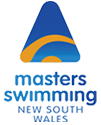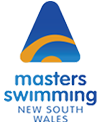This is the ninth in a series of articles designed to help you swim at your best at meets or just appreciate your swimming experience more. This edition is more relevant for those Masters swimmers who take their competition more seriously, for whom performance at a meet takes high priority, and who have the physical capacity and desire to apply high levels of effort in their races.
When I ask Masters swimmers after they have swum a race: ”How did you go?” or “What time did you do?”, I quite often get a reply along the lines of: “Great! I did a personal best (‘PB’)!” Actually I more often get a detailed description of their interrupted preparation for the meet (including work commitments, illnesses and injuries – almost never slackness) and/or all the reasons why they didn’t swim quite as fast as they had expected or would have liked; but I digress. So I then annoy them by saying: “So that is your lifetime PB?”, to which they reply: “No of course not, but it’s the fastest I’ve done in a while.”
Well folks, I hate to be pedantic (I lie, I love it), and sorry to disappoint you, but you only have ONE PB in any event, and that is the fastest time you have ever done in your life. Now some Masters swimmers (particularly those that didn’t compete seriously during their physical prime, say, between the ages of about 16-30) are lucky enough to do PBs at Masters meets and can continue to do so for a number of years before the inevitable decline sets in. Victorian Power Points member and multiple Australian record holder Jennie Bucknell was still doing PBs not too far short of her 50th birthday! I managed PBs in two events at Masters meets, albeit when I was 28 and 30 and in 50 metre events I rarely swam in elite competition.
So how do you best judge your performances at a meet, given that for almost all of us PBs are but a distant memory? Well for starters it is best and most appropriate to primarily compare yourself with yourself. Everyone likes to win or place highly, but you are best served to focus on what times you do at a meet and how good those times are for you. Fortunately it seems that most Masters swimmers do this.
But how do you measure how good any time is? Two good ways are to have “Age Group Best Times” and “Year/Season Best Times”. Age Group Best Times are the fastest times you have done in any five-year age group. One of the few benefits of getting older is that every five years you go up an age group and have a new set of Age Group Best Times, and if you are really fast, a new set of State, National and World records, to attack! Age Group Best Times are quite an achievement, especially if you do them in the last year or two of your age group. Year/Season Best Times are the fastest times you have done in any year or season. Naturally you should have different sets of Age Group and Year/Season Best Times for long and short course, although the difference between the two courses tends to diminish as you get older, and turning speed decreases. So keep track of your Age Group and Year/Season Best Times and use them as motivation each time you compete.
Or you might like to try this more obscure approach, which occurred to me at quite a young age and I have used virtually subconsciously ever since. Imagine every time you race there is a time out there in the aquatic ether (is there such a thing?) that is the absolute fastest time you are capable of at that point in time considering all the physical, psychological and situational variables that affect your performance. Your primary goal should always be to do as close as possible to that time, whatever it is. I used to often almost subliminally create a ‘B time’ and an ‘A time’, where the B time was the minimum time that would make me pleased with my performance, and the A time was my estimation of that time out there floating in the aquatic ether, the one I was capable of if I got everything just right.
You don’t even need to have a specific time or times in mind, all you have to do is try and swim as fast as you possibly can every time:
· Whatever your motivation, whether it be win, achieve as high a place as possible, beat annoying rival X, break a record or do a Personal, Age Group or Year/Season Best Time, or help your club maximise their points, the best thing you can do is swim your fastest possible time, because, guess what, that’s how all those things are measured! What more can you do?
· To swim as fast as you possibly can, you must apply all your mental and physical energy to all (and only) the things you can control, namely YOUR pace judgement, YOUR technique and skill execution, and YOUR maximum energy expenditure. Again, what more can you do?
Revel being in ‘Raceworld’, that special place we go to from just before we race until we have finished. Raceworld isn’t necessarily immediately pleasurable, but is challenging, exhilarating and addictive and I bet it has a lot to do with why you compete, whether you fully realise it or not. Raceworld offers you the opportunity to do a favourite activity to the very best of your ability, and unless you have physical or health reasons not to comply, what Raceworld demands of you above all else is an absolute commitment to swimming as fast as you possibly can. I used to (and still do?) regard it as being ‘disrespectful’ to Raceworld to do anything less. And if you always do the best you possibly can, you can always be pleased with the result.
So swim your best and swim for (your) life!
Mark Morgan

